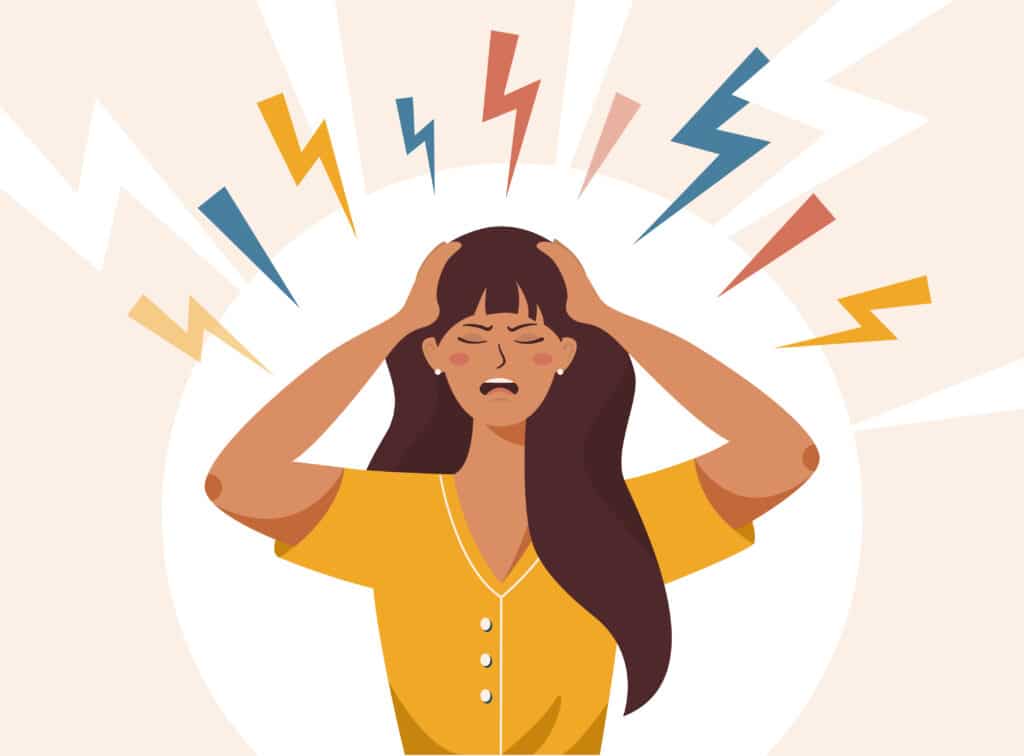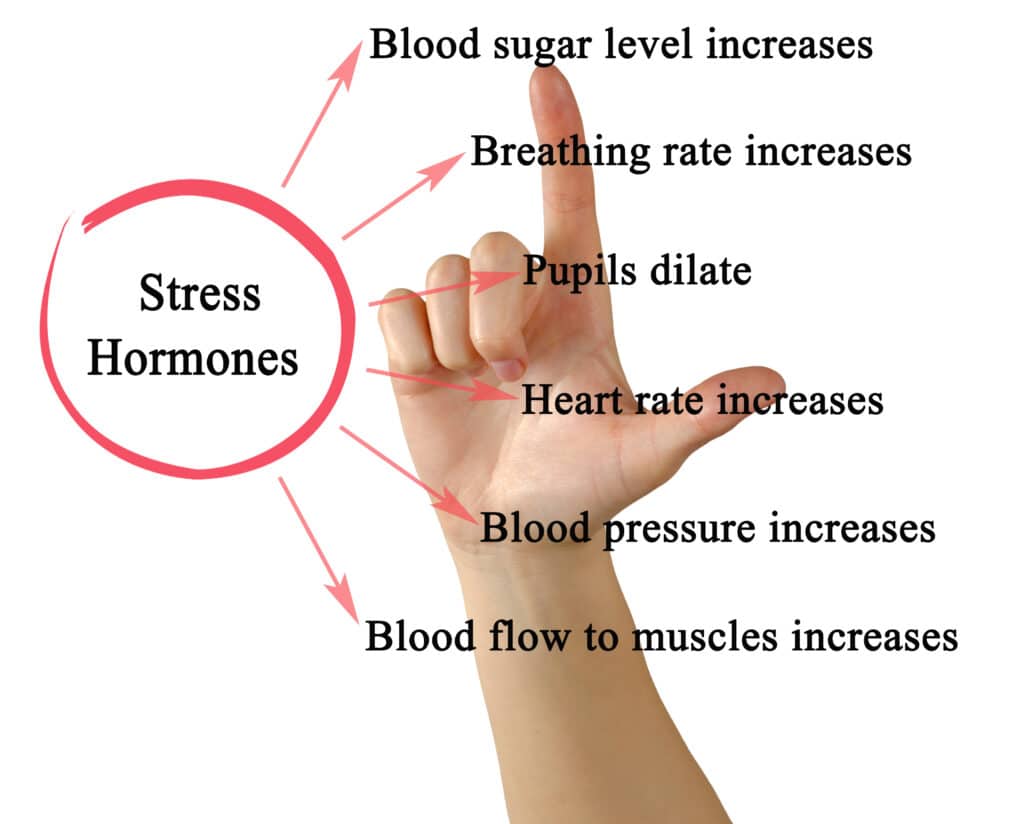
Manage stress effectively by recognizing it as a mental or emotional strain caused by demanding situations. To manage stress effectively, it’s important to use healthy coping strategies, such as exercise and meditation, rather than resorting to substances like drugs or alcohol. This article will discuss how you can manage stress effectively using exercise and supplementation.
Our bodies are hard-wired to react to stress by means of keeping us safe from our predators. Nowadays, we do not have as many predators, but we may have more stress. Lifestyle, jobs, children, family; your body still treats these everyday occurrences as stressors. Let’s break down stress as how the body handles it.
When the body senses a threat or a challenging situation, this is known as a stressor. The body responds to the stressor by producing several different hormones; epinephrine, norepinephrine, and cortisol.
Epinephrine, which is produced by the adrenal glands, is also known as adrenaline. This powerful stress hormone plays a vital role in the body’s acute stress response and gives us that “fight of flight” response. Norepinephrine is also produced by the adrenal glands and its role is to send a signal to the brain saying “this is a stressful situation”. Both epinephrine and norepinephrine are involved in the initial changes that take place to prepare the body to react and prepare for a new challenge. In an acute setting, these two hormones affect your blood pressure, heart rate, and respiration rate.
When you have a stressor that just will not go away, this is known as being chronic. Not only do the above-mentioned symptoms persist, but now you may have a decreased immune system, pain receptors may have heightened or diminished (pending the situation), upset digestive and reproductive systems, and your brain becomes rewired, leaving you vulnerable to anxiety, depression, and other mental health problems.
The main hormone that is associated with stress is called cortisol. Cortisol is oddly enough nicknamed, “the stress hormone”. During an acute phase of stress, cortisol is released from the adrenal glands and a flood of glucose is released becoming the primary source of energy. When glucose is released, the body stops the production of insulin so that glucose is immediately available during our “fight or flight” stressor.
Hormones…some may feel they can’t live with them, but at the same time we can’t live without them. The human body secretes and circulates fifty different hormones. Think of hormones as our body’s chemical messenger. Our heart cannot beat without them and our body wouldn’t be able to survive more than 24 hours without them.
From the moment of conception, we experience hormones. This particular hormone is called human chorionic gonadotropin (hCG). It is produced by the placenta which helps maintain the pregnancy and grow your bundle of joy. We, however, are not here to talk about babies. We are here to focus on managing our hormones and eliminating weight gain that can be associated with them. We will discuss ten different ways to help manage hormonal weight gain.

Normally, when the stressor is gone, our hormones return to normal. This is referred to as homeostasis. When the stressors are always present and the body constantly feels under attack, this is referred to as chronic stress. Your “fight or flight” system is always turned on. Blood pressure, heart rate, respiration rate, etc is always heightened. Chronic stress can lead to a multitude of health problems including, but not limited to:
- Depression
- Anxiety
- Digestive problems
- Persistent pain
- Decreased immune system
- Weight gain
- Heart disease, stroke
- Headaches
- Inositol
- Vitamin B
- Magnesium Glycinate
- Ashwagandha
- Melatonin
- L-theanine




